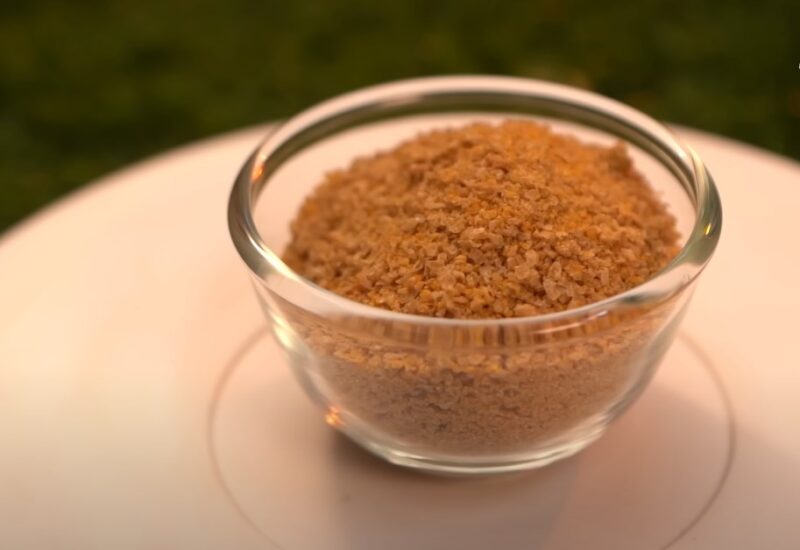Feminine odor is a common concern among many women. While it’s natural for the body to have a certain scent, there are times when the odor may become more pronounced. A variety of factors can contribute to this change, from diet and hydration to hormonal fluctuations and infections.
Luckily, several home remedies can effectively reduce or eliminate this odor. In this post, we’ll discuss some of the most effective methods backed by trusted medical sources.
The Causes
Understanding what causes feminine odor is the first step to addressing it. By identifying the root cause, you can select the most effective home remedies and treatments.
Bacterial Imbalances
The vagina naturally contains a balance of good and bad bacteria. When this balance is disrupted, it can result in bacterial vaginosis (BV), which often causes a fishy odor.
Normal Flora and BV
A healthy vagina has a mix of various bacteria, with lactobacilli being the predominant type. However, when harmful bacteria outnumber the beneficial ones, BV can occur. According to the CDC Bacterial Vaginosis, BV is the most common vaginal condition in women aged 15-44.
Home Remedies for BV
Restoring the balance of bacteria in the vagina is key. Probiotic-rich foods, such as yogurt, can help in this regard. Avoiding douching is also essential, as it can disrupt the natural bacterial environment.
Hygiene and Lifestyle Factors

The way you care for your intimate area and your lifestyle choices can also contribute to changes in feminine odor.
Factors Affecting Odor
Factors like wearing tight clothing, using scented soaps, and not changing underwear regularly can exacerbate the issue. Mayo Clinic wrote about feminine hygiene products, stating that it’s best to avoid products that can disrupt the vagina’s natural pH.
Home Remedies
Wearing cotton underwear, practicing good hygiene, and rinsing the external genital area with warm water are effective ways to reduce unwanted odors.
Home Remedies for Feminine Odor

There are numerous home remedies that can effectively reduce feminine odor. These remedies are both affordable and easy to implement.
Apple Cider Vinegar (ACV)
ACV is a popular home remedy for various ailments, and it can also be effective in balancing the vagina’s pH and combating odor.
Using ACV
One method is to mix two cups of apple cider vinegar in warm bath water and soak for 20 minutes. This can help neutralize odors and combat harmful bacteria. Healthline article on apple cider vinegar uses states it can serve as a potential remedy for a range of skin conditions and might help restore pH balance.
Safety Considerations
However, some people may be sensitive to ACV. It’s essential to always dilute it and test a small area of the skin before fully immersing it in an ACV bath.
Fenugreek Seeds

Fenugreek seeds are known for their numerous health benefits, including balancing hormones and improving menstrual cycles, which can indirectly help reduce feminine odor.
Consuming Fenugreek
One way to incorporate fenugreek is to drink fenugreek-infused water. Soak a teaspoon of seeds in water overnight and drink the water in the morning on an empty stomach.
A study published in the Journal of Reproduction & Infertility on Fenugreek and female cycles states that fenugreek can influence menstrual cycles and hormone regulation.
- Considerations: While fenugreek is beneficial, excessive consumption can cause side effects. Always consult with a healthcare provider before making significant changes to your diet.
Preventing Feminine Odor in the Future

Maintaining a balance is key. Here are some measures you can take to prevent future occurrences of feminine odor.
Dietary Choices
What you eat can directly affect your body’s odor, including the feminine area.
Foods to Include
Foods rich in antioxidants and vitamins, like fruits and vegetables, can improve your overall scent. Drinking plenty of water also helps in flushing toxins.
According to the WebMD article on diet and body odor, certain foods can influence the way we smell. For instance, foods with strong scents, like garlic and onions, can seep through sweat glands, affecting body odor.
Foods to Avoid
Reducing caffeine intake, sugary foods, and overly processed items can also make a difference.
Regular Check-ups

Regular medical check-ups can help in identifying and addressing any underlying issues contributing to feminine odor.
Importance of Check-ups
Sometimes, an odor might indicate an infection or another medical condition that requires attention. Studies by the American College of Obstetricians and Gynecologists on vaginitis state that infections like yeast infections, trichomoniasis, and BV can cause changes in vaginal odor.
- Regular Monitoring: Staying in tune with your body and noting changes can help you address issues before they escalate.
Embracing Natural Scents and Self-acceptance

It’s essential to note that everyone has a natural scent, and it’s part and parcel of being human. Embracing our natural odors while understanding when they might indicate a health concern is crucial for body positivity and self-acceptance.
Differentiating Between Natural and Unusual Odors
Recognizing the distinction between your natural scent and an unusual odor can help address potential health concerns timely.
Natural Scents
After menstruation, physical activity, or even during ovulation, it’s typical for women to notice a distinct smell. These scents can vary based on diet, hormones, and personal chemistry.
According to the Office on Women’s Health, U.S. Department of Health & Human Services on vaginal health, it’s normal for the vagina to have a mild odor, and this odor may change during different parts of the menstrual cycle.
Unusual Odors
An unusually strong or foul odor, especially if accompanied by itching, burning, or unusual discharge, could be a sign of an infection or another medical condition and should be addressed with a healthcare professional.
Breaking the Stigma Surrounding Feminine Odor

Society often perpetuates the idea that women should be odorless or have a specific scent, leading to unnecessary stigma and shame.
- Challenging Social Norms: We should challenge and question the societal pressures and marketing strategies that sell scented feminine products, often suggesting that natural scents are undesirable.
- Embracing Authenticity: Embracing and accepting our natural scents is a step towards authenticity and self-acceptance. Celebrate your body for its functions, uniqueness, and the incredible things it does.
FAQs
Can stress influence feminine odor?
Yes, stress can have an impact on feminine odor. When a person is stressed, their body releases more cortisol, a stress hormone.
This can influence other hormones in the body, potentially affecting the pH balance of the vagina, leading to an altered scent.
Are there specific exercises that can promote better feminine hygiene and reduce odor?
While no specific exercise directly reduces feminine odor, regular physical activity can promote overall health, improve circulation, and boost the immune system, helping the body naturally combat infections that might lead to odors.
However, it’s essential to maintain proper hygiene post-exercise to prevent sweat and bacteria build-up.
Can menstrual products like tampons or menstrual cups affect feminine odor?
Yes, menstrual products can sometimes influence feminine odor. Leaving a tampon in for too long or not cleaning a menstrual cup properly can create a breeding ground for bacteria, potentially leading to infections and an associated odor. It’s vital to change tampons regularly and ensure menstrual cups are cleaned thoroughly.
How does menopause impact feminine odor?
Menopause brings about hormonal changes that can alter the vaginal environment. Decreased estrogen levels during menopause can result in a thinner vaginal lining and less natural lubrication.
This can change the pH balance of the vagina, potentially leading to a different scent or increased susceptibility to infections.
Can oral medications or antibiotics affect the scent of the vaginal area?
Yes, some medications, especially antibiotics, can disrupt the natural balance of bacteria in the vagina. Since antibiotics target both good and bad bacteria, they might inadvertently reduce the number of beneficial bacteria in the vaginal area, leading to conditions like yeast infections, which can be associated with a distinct odor.
Is there a correlation between sexual activity and feminine odor?
Sexual activity can sometimes influence vaginal odor. Semen has a different pH than the natural pH of the vagina, and its introduction can temporarily alter the vaginal environment. This change might lead to a temporary change in odor.
Furthermore, unprotected sexual activity can introduce new bacteria and increase the risk of infections, which can be associated with a change in feminine odor. It’s essential to maintain good hygiene and consider regular check-ups to ensure optimal vaginal health.
Final Words
Feminine odor is a part of natural body processes, and while it’s essential to be aware of changes that might indicate health concerns, it’s equally crucial to embrace and accept our bodies as they are.
Home remedies can be effective in addressing and reducing natural odors, but they should be approached with caution, keeping individual differences in mind. Always prioritize your health and well-being, and don’t hesitate to consult with a healthcare provider when in doubt. Our website covers various medical topics, so make sure to revisit us and stay up-to-date.

